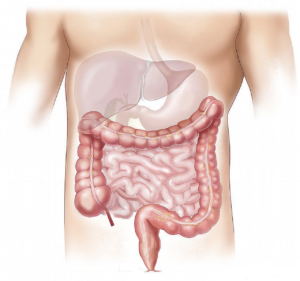A gastroenterologist specializes in treating a variety of diseases and conditions affecting the digestive tract or intestines. Preventing, diagnosing, and treating issues pertaining to the gallbladder, esophagus, liver, intestines, colon, stomach, and rectum. These conditions include:
 Heartburn and gastroesophageal reflux disease (GERD)
Heartburn and gastroesophageal reflux disease (GERD)
Inflammatory bowl disease (IBD)
Crohn’s and ulcerative colitis
Hemorrhoids and liver disease
Irritable bowel syndrome (IBS)
Celiac Disease and Stomach Ulcers
Colon polyps and pancreatitis
When should you go see a gastroenterologist?
Rectal Bleeding
This growing problem typically is the result of something minor, such as anal fissure or hemorrhoids. If severe, it could be a sign of an issue that is more serious. If rectal bleeding is accompanied by a fever, abdominal pain, or last 2 or 3 days, it is time to make an appointment with a gastroenterologist.
Persistent heartburn
It happens to just about all us at one time or another, especially after a spicy meal. But if you have heartburn several times a week, it could be causing serious harm. Gastroesophageal reflux disease (GERD), damages the esophagus lining, leading to a host of issues. A gastroenterologist can properly diagnose and treat the problem, eliminating the symptoms and a healthier life.
Changes in bowel habits
Your bowels say a lot about your digestive health. If you have diarrhea that last more that a few days or experience chronic constipation for over a week, a gastroenterologist can determine the cause. It can be anything from digestive disorder, food intolerance, bacterial infection, to Crohn’s disease.
Abdominal pain
There are many reasons why you may experience abdominal pain, but if it is happening frequently, accompanied by nausea, bowel issues or after meals, then it warrants a doctor’s visit.
You are 50 years old or older
Routine colorectal cancer screening starts at 50 years old, with a colonoscopy. Unless you are at an increased risk for polyps or correct cancer, then routine screenings start earlier.
Diverticulitis
As we get older, small pouches form in the colon or large intestine called diverticula. When these pouches get inflamed, they cause abdominal discomfort and pain. Diverticulitis is also associated with bloating, constipation, cramping, nausea, vomiting, chills a fever. A gastroenterologist can diagnose and provide a treatment plan for lasting relief.
Barret’s esophagus
A condition in which the flat pink lining of the esophagus becomes damaged by acid reflux. This causes the lining to thicken and become red. Barret’s esophagus is associated with an increase risk of developing esophageal cancer due to the changing of cells according to the Mayo Clinic.
 How bad is the pain?
How bad is the pain?
It is important to seek emergency medical care if your abdominal pain if associated with an injury or accident, Orin you have pain or pressure in your chest.
“While the location and pattern of abdominal pain can provide important clues, its time course is particularly useful when determining its cause,” according to the Mayo Clinic.
“Acute abdominal pain develops and often resolves over a few hours to a few days. Chronic abdominal pain may be intermittent (episodic), meaning it may come and go. This type of pain may be present for weeks to months, or even years. Some chronic conditions cause progressive pain, which steadily gets worse over time.”
If you or a loved on is suffering from with abdominal pain or digestive health, contact Gastroenterology Consultants of Central Florida. Our mission is to provide our patients with the highest quality of care with the latest technology available. Once diagnosed by a Gastroenterologist, there are several treatment options and medications available to help treat and ease your symptoms.
Preventative screening and testing help detect diseases and conditions in their early and most treatable stages. For more information or to make an appointment, contact Gastroenterology Consultants of Central Florida.
